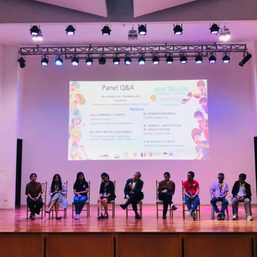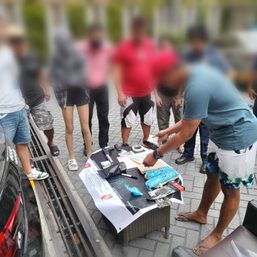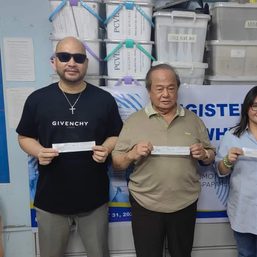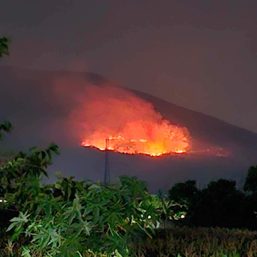SUMMARY
This is AI generated summarization, which may have errors. For context, always refer to the full article.

MANILA, Philippines – He used to write news but a year after coming out about his legal status and advocating immigration reform, Jose Antonio Vargas has become a newsmaker. Now, he is even on the cover of Time Magazine.
The Pulitzer Prize-winning journalist came from the Philippines but calls himself an “undocumented American.”
In Time’s June 25 issue, Vargas writes his own cover story on his life as an undocumented immigrant and immigration in 21st century America. The title of the cover story is “Not Legal, Not Leaving.”
He is the founder of Define American, a campaign that seeks to elevate the conversation around immigration.
Vargas writes for Time.com, “There are an estimated 11.5 million people like me in this country, human beings with stories as varied as America itself, yet lacking a legal claim to exist here.”
“It’s an issue that touches people of all ethnicities and backgrounds …. It’s an issue that goes beyond election-year politics and transcends the limitations of our broken immigration system and the policies being written to address them.”
The Huffington Post reported that “for Vargas and most Filipinos, the wait for a visa that might allow legal immigration to the United States can often span decades because of the structure of US immigration policy.”
The news website said that Time’s cover story comes as immigration policy appears likely to be an election issue and topic of national debate. The US Supreme Court is about to decide on the legality of Arizona’s immigration enforcement law.

‘Most misunderstood issue in US’
In June 2011, Vargas admitted his legal status in an essay for the New York Times Magazine. He revealed that he has been living and working in the US as an undocumented immigrant, with the help of a support network.
When he was 12, his Filipino mother and naturalized American grandparents arranged to send him to the US using fake documents in order to give him a better life.
Vargas said he grew up considering America his country. He used fake documents and lied to co-workers and friends, fearing he would be deported.
He worked for top news companies like the Washington Post and the Huffington Post. He won a Pulitzer Prize for his coverage of the Virginia Tech shootings.
He wrote in the New York Times article, “I convinced myself that if I worked enough, if I achieved enough, I would be rewarded with citizenship. I felt I could earn it.”
Since coming out, he has advocated for immigration reform. He said he was surprised he has not yet been deported.
In a Time.com video complementing the cover story, he said, “There’s no way to make myself ‘legal.’ The process is not easy and in the year that I’ve been travelling around the country and getting to know this issue, what I’ve really understood is how this is arguably the most fundamentally misunderstood issue in America.”
Vargas said that through the Time feature, he aimed to spotlight “the growing immigration rights movement and the ins and outs of the citizenship process.”
“Really, the question of immigration is even bigger than immigration itself. It’s the question of citizenship. It’s a question of what this country is about. It becomes a question of how you even define what an American is.”
“And that’s what I’m trying to figure out.” – Rappler.com
Add a comment
How does this make you feel?





There are no comments yet. Add your comment to start the conversation.